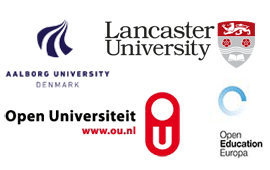

Third Spaces of Learning in Open Courses: Findings from an Interpretive Case Study
Suzan Koseoglu, Department of Curriculum and Instruction, University of Minnesota
In this case study, I present an interpretive exploration of five open participants' learning experiences in a massive open online course (MOOC), which was offered by a higher education institute in the United States as a general education course in research writing. There were two types of enrolment in the course: formal (students who enrolled in the course for credit, six sections) and informal (open participants). Open participants had access to the public activities of the learning community, but they did not receive any academic certification, evaluation, or grading from the instructors.
Blogging was central to all educational activity in the course. Learners and instructors openly blogged during the course and beyond in response to the class assignments and on other areas of interest. In this study, participant blogs are conceptualized as social spaces created by a multitude of interactions (e.g., with content, instructors, other learners, the imagined audience). These spaces were a starting point for the researcher to examine five open participants’ learning activities in the course. Primary data collection methods included interviews, participant observations, and document and artefact analysis. Thematic analysis of data illustrates how open participants participated in the course in multifaceted and unique ways and created third spaces of learning— spaces where the scripts of formal and informal learning intersect and create opportunities for learning to occur in emergent ways (Cronin, 2014; Gutierrez, Rymes, & Larson, 1995).
I present two typologies that point to the self-directed and emergent nature of open participation within those spaces: (1) open participants created unique course histories through their blogs, (2) open participants did not follow the formal learning path. These findings suggest that the traditional markers of success in formal education (e.g., sustained engagement, course completion, directly measurable outcome) might be insufficient to frame participants’ involvement in open online courses. The diversity in learner goals and roles calls for a need to shift the focus of open online courses from the end product to the learning process and challenges formal narratives of success and failure in open online courses.
Keywords
Blogs, blogging, case study, interpretive research, massive open online course, MOOC, third spaces of learning.
Full Paper - .pdf
Joint Organising Institutions
| Conference Travel and Accommodation |Doctoral Consortium | Past Conference Proceedings | Contact |